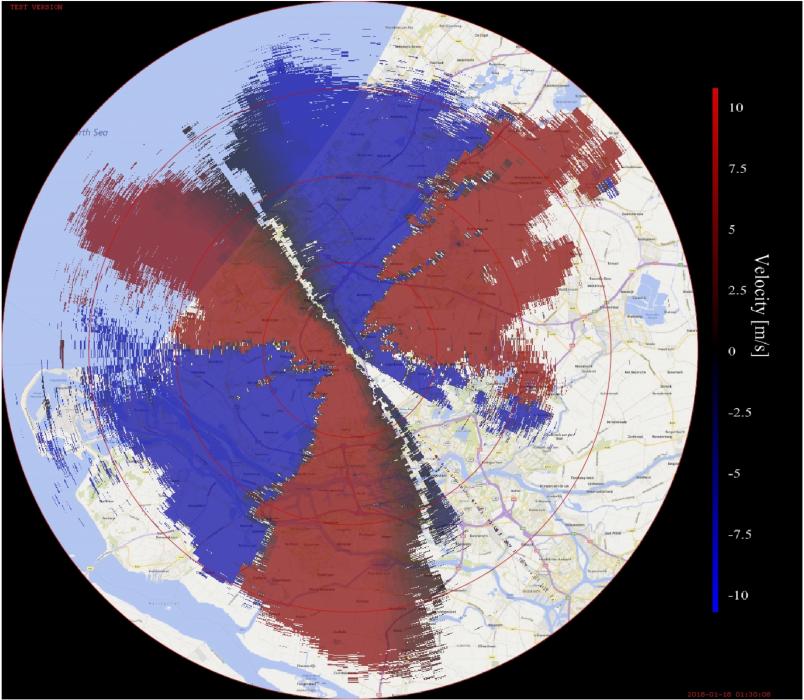Openings at ME
PhD position in Radars for Atmospheric Remote Sensing
Opening for: PhD studentStatus details
| Status: | Closed |
|---|---|
| Announced: | 23 Mar 2020 |
| Closing date: | 22 May 2020 |
| Duration: | 4 years |
The project:
One of the ambitions of the RHIA-Airport Technology Lab project is to improve the situation when the airports, their air traffic management, and pilots use obsolete weather forecasting models, which are sometimes renewed only once a day. These weather models offer little insight into local weather conditions, such as local wind strengths and wind directions, rain, hail and snow intensities. Air traffic controllers and pilots must therefore still rely on their own insights into the weather conditions around the airport and use standard safety procedures that do not take into account weather conditions. The project goal is to develop a highly accurate real-time weather description for airport environments that provides insight into wind, precipitation and turbulence intensities for air traffic management organizations (ATM) and airline companies (pilots). The weather information must meet requirements set by these organizations resulting in improved safety and efficiency of take-off and landing with less environmental impact (noise and emissions). Within this goal, the MS3 radar research group of the EEMCS faculty of TU Delft has to develop new signal processing and data retrieval algorithms to measure in real-time the Doppler velocity of precipitations with high resolution and accuracy. Transformation of these high-resolution data to the close to real-time retrieval of 4D (3D locations and time) maps of the precipitation types and intensity, wind and turbulence fields in the area around the airport location will be developed. These retrievals will be used directly for the situation awareness of the airport authorities and as input for the modern high-accurate weather nowcasting algorithms.
In the frame of the project goals the appointed by TU Delft Ph.D. student will focus on the development of model-based statistical algorithms for accurate high-resolution estimation of fields of Doppler velocity and reflectivity in case of spatially-distributed targets, their conversion to 4D fields of wind, turbulence, precipitation types and intensities. The proposed algorithms have to be tested and validated using simulated and real experimentally measured data.
The advertised Ph.D. position is situated in the Microwave Sensing, Signals and Systems (MS3) group in which expertise in model-based signal processing, detection, and estimation algorithms, radar technology, and atmospheric remote sensing is available.
Requirements
We are looking for candidates who
- have a strong MSc degree in signal processing for radars and communications, detection and estimation theory, information theory, atmospheric remote sensing with radars, or a related discipline;
- can bridge the distance between advanced fundamental concepts and theories on the one hand and practical implementation and evaluation of these concepts on the other hand;
- can think out of the box, distinguish main lines from details, and provide structure to their work;
- have excellent multidisciplinary team working and communication skills;
- a practical experience on software projects implementation in matlab (python, C, C++) will make the researcher life easier.
Contact
prof.dr. Olexander Yarovoy
Professor, Chairman
Microwave Sensing, Signals and Systems Group
Department of Microelectronics
Additional information
In The Netherlands, almost all PhD positions are linked to funded research projects. This has several implications:- PhD students are employed: they receive a salary rather than a grant. Most projects have a duration of 4 years.
- Positions become available once a project is funded. This can happen at any time during the year.
- It typically takes 6 to 9 months for a project proposal to receive funding. In this period, a position may be anticipated but the outcome remains insecure. Once a project is funded, the open position needs to be filled as soon as possible.
If you are interested in our research, it merits to inquire whether openings will be available. We collect resumes of prospective PhD students throughout the year, for each of our research tracks.
General requirements
We make our selection based on the following general requirements:- Formal requirements regarding prior education: you should have earned an MSc degree at a recognized institute for higher education.
- Background: you should have a background that fits the requirements of the project
- Excellence: your Grade-Point-Average should be above 8 (10). Also your MSc thesis should have received a grade above 8 (10).
- English: you should be able to communicate well in english (written and oral). Provide TOEFL/IELTS scores if available.
- Originality: your MSc thesis or later work (publications) should reflect some original ideas. Critical and independent thinking is very important.
- Team player: you should be able to work well in a team of other project members.
